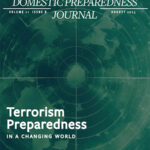The concept of financial preplanning is often stressed to individuals in terms of savings accounts and life insurance policies. However, some people do not have the financial means to plan for themselves in this way. Likewise, not everyone is able to withstand the impacts of large-scale disasters and their rippling effects. To prepare response and recovery team members for emergencies and disasters, companies and organizations can offer planning and preparedness options to their employees to help mitigate some of the impacts. However, with many potential disasters and possible outcomes, the best preplanning solutions are not always obvious to assist team members.
An Island on Fire
On August 8, 2023, the deadliest U.S. wildfire since 1918 swept across sections of the Hawaiian island of Maui. President Joe Biden signed a Major Disaster Declaration on August 10 to provide assistance to the state. Governor Josh Green reported that, as of January 2024, 5,404 of those evacuated remained displaced. According to the U.S. Fire Administration’s preliminary after-action report in February 2024, more than 100 Mauians lost their lives, the island experienced approximately $5.5 billion in damages, and more than 2,200 structures were destroyed.
Shortly after the fires started, disaster response organizations began activating relief. From needed medical supplies to other necessities, the national response was quick and effective. This distribution of material objects and boots-on-the-ground assistance exemplifies “incident recovery” efforts. The Maui fires also brought an influx of monetary donations to third parties and non-profits for the purpose of providing aid to those affected. Many donations were made to Maui Strong and similar initiatives, with funds still available primarily for local nonprofits to apply for grants. However, getting funds directly into the hands of impacted individuals is more challenging.
Maui reminds companies that they need to pre-plan to support team members in times of unexpected disaster or hardship. A more direct, personal method of financial first response for companies is to enable their impacted team members to apply for essential financial assistance through an employer-sponsored disaster and hardship relief fund. This type of fund puts money directly into the hands of affected individuals, enhancing the path to recovery.
A Disaster Recovery and Relief Fund Difference
Launching a relief fund to preplan on behalf of team members provides needed financial aid for employees struggling through a disaster or personal hardship, giving them breathing room while they rebuild and recover from an incident. Although differing in how relief is supplied, relief funds (direct financial assistance to individuals) and on-the-ground response (medical, materials, engineering, carpentry) have a shared goal to ease the desperation and burden when a natural disaster hits. While boots-on-the-ground responders may locate shelter, food, and water for those affected, relief funds provide tax-free grants to individuals for necessary shelter, home repairs, food, and other pressing needs following a disaster or personal hardship.
Companies can operate employer-sponsored relief funds internally, or they can hire third-party administrators to independently manage fund activities including accepting donations, reviewing grant applications, awarding and distributing grants, and maintaining legal and regulatory compliance.
Third-party administrators often have established grant processes that take affected team members through the necessary steps of initial registration and application, review, verification, quality checks, and grant award and distribution. Although process timelines vary, these awarded grants can be expedited within hours following a federally declared disaster.
As some organizations began fundraising efforts soon after the Maui disaster, organizations with already established funding streams were able to provide financial assistance directly and immediately to eligible grant recipients within 48 hours of application. For example, in Maui immediately after the wildfires began devastating the island, the nonprofit organization Emergency Assistance Foundation (EAF) provided relief to those impacted through the more than 350 funds it administers.
To help as many families as possible, EAF also launched the Maui Wildfires Relief Fund, a publicly available fund that provided cash grants to others affected by the fires regardless of their connection to an employer-sponsored fund. Ultimately, EAF’s Maui Wildfires relief totaled more than $200,000 in grants and assisted 400 individuals and families. EAF will provide similar support for future events through the newly created People First Fund.
Encourage Preplanning and Protection
Regardless of whether a company partners with a third-party relief fund administrator or decides to manage the process internally, one truth remains: now is the time to preplan for a disaster and its impact. Encourage companies or interested team members to learn more about what is available and how disaster and hardship relief funds can enhance individuals’ ability to move forward in a crisis. The aftermath of the Maui wildfires provided many financial lessons learned.

Douglas (Doug) Stockham
Douglas (Doug) Stockham co-founded Emergency Assistance Foundation (EAF) – a 501(c)(3) public non-profit – in 2011 to help companies take care of their team members in need. Bringing his entrepreneurial spirit to EAF, Doug created an organization thathas received more than $395 million in donationstohelp over340,000 individualsand families with grants totaling upwards of $270 million. He has positioned EAF to successfully respond to large-scale disasters – including devastating hurricanes Harvey, Irma, and Maria in 2017, the global COVID-19 pandemic in 2020, andtheongoing conflict in Ukraine – ensuring that financialassistancereaches those in need no matter the location or obstacle. Doug earned a Bachelor of Arts degree from Vanderbilt University and a Master of Business Administration degree in finance from The Wharton School at the University of Pennsylvania.
- Douglas (Doug) Stockhamhttps://domesticpreparedness.com/author/douglas-doug-stockham





